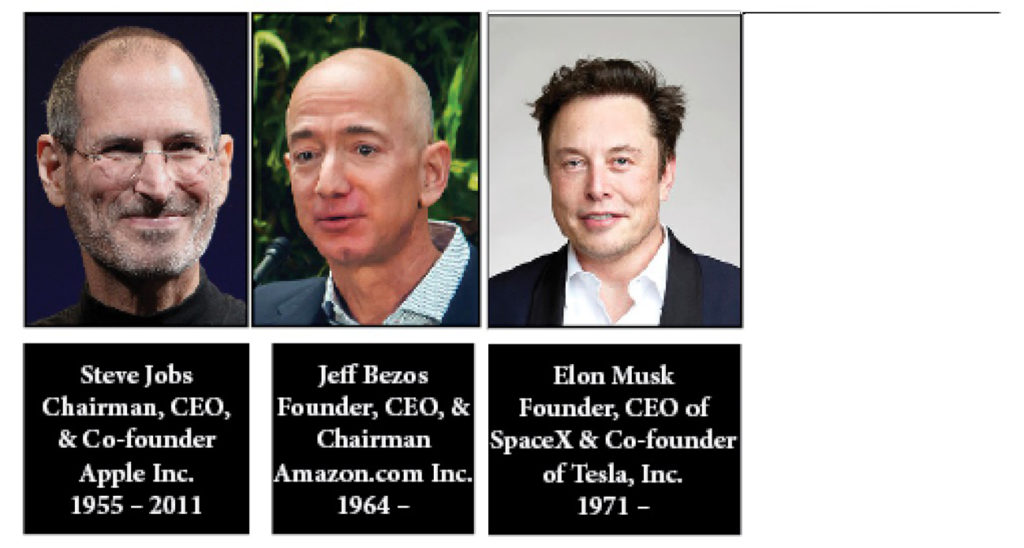
Companies in the high-tech fields compete aggressively for employees who are highly intelligent. To gain an insight into the skills sought by those who are recruiting employees, we look at a sample of interviews of the captains of the giant corporations. In 1993, Forbes journalist Richard Karlgaard, in a conversation with Bill Gates asked, “What Microsoft competitor worries you most?” Without hesitation, Gates responded, “Goldman Sachs.” When Karlgaard responded with surprise that Gates named an investment banking company rather than a computer company, Gates clarified:
Software is an IQ business. Microsoft must win the IQ war, or we won’t have a future. I don’t worry about Lotus or IBM, because the smartest guys would rather come to work for Microsoft. Our competitors for IQ are investment banks such as Goldman Sachs and Morgan Stanley.
Indeed, the competition for the best and brightest is a war fiercely waged by the best companies in the hi-tech fields, because these high IQ cognoscenti are the only people capable of pushing innovation to new heights. In 2005, a dozen years after his conversation with Bill Gates, Karlgaard reported:
I spent five days traveling the country with Gates, and he must have talked about IQ a hundred times. Getting the brightest bulbs to work at Microsoft has always been his obsession. It’s paid off. Microsoft does close to $40 billion in sales and has some 60,000 employees. That’s a whopping $650,000-plus of revenue per employee, topping IBM’s sales per employee twofold.
Along comes Google, with its revenue run rate of $6 billion and about 4,000 employees. Google’s sales per employee are $1.5 million, or 2.3 times that of Microsoft. This is like comparing Babe Ruth to Home Run Baker. Google now beats Microsoft in the IQ war.
Steve Jobs, founder of Microsoft’s major competitor, Apple Inc. explained in an interview with Business Week on October 12, 2004, one of the secrets of his success in hiring employees.
I noticed that the dynamic range between what an average person could accomplish and what the best person could accomplish was 50 or 100 to 1. Given that, you’re well advised to go after the cream of the cream … A small team of A+ players can run circles around a giant team of B and C players.
Jeff Bezos echoed the comments of Gates and Jobs in emphasizing the importance of IQ as the most vital element sought in Amazon’s recruitment and hiring of their top people. Leibovich observed:[1]
The philosophies Bezos applied at Amazon follow a principle he has long embraced: Intrinsic ability [IQ] rules, trumping acquired skills [EQ] and accumulated experience.
In a 2014 interview, Elon Musk, when asked, “When you hire people, what skills do you want them to have?” responded, “What I’m really looking for is evidence of exceptional ability.”[2] If we were to sample most of the top corporations today, including investment companies as well as hi-tech innovators and lower tech retailers, we would get similar responses.
Outside the high-tech and investment industries, there is not such a high premium on IQ and people skills, often referred to as emotional IQ (EQ), are important. The ability to work with people, provide leadership and unify employees around a shared goal is a particularly important attribute for those working in the corporate world.
Footnotes:
[1] Leibovich, Mark. 2001. The New Imperialists: How Five Restless Kids Grew Up to Virtually Rule Your World, New York: Prentice Hall Press. p. 57.
[2] A YouTube video of this interview is accessible at: https://youtu.be/FE4iFYqi4QU The quote begins at 9:22 in the video.
[3] For more information, visit: Intelligence, IQ & Perception: Chapter 8 – Intelligence and IQhttps://www.intelligence-and-iq.com/chapter-8/
